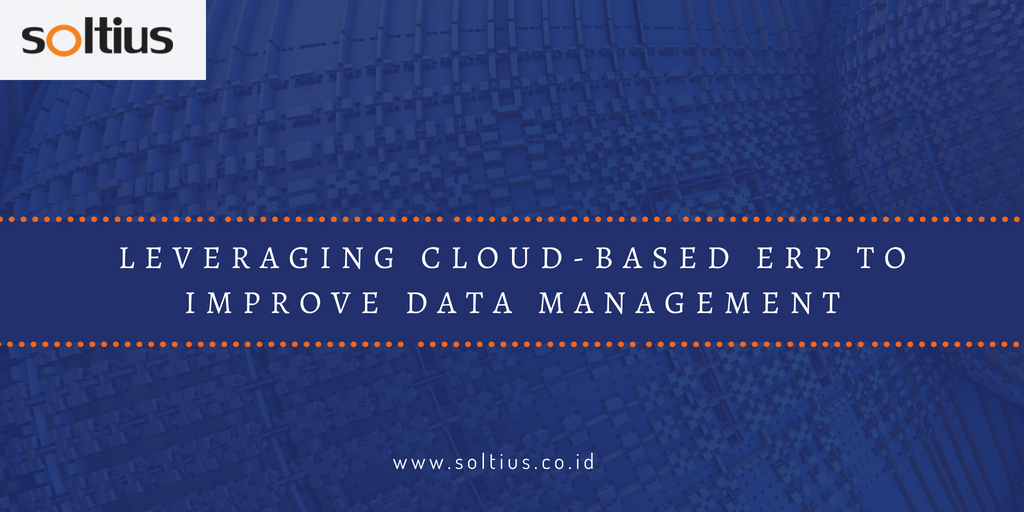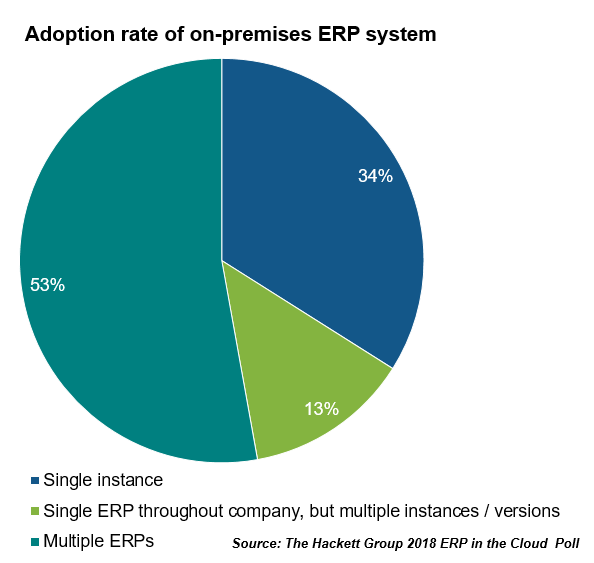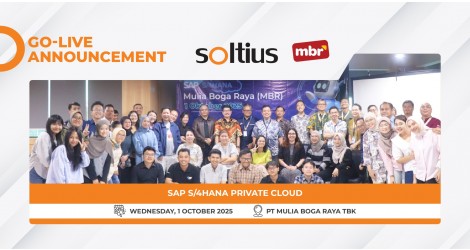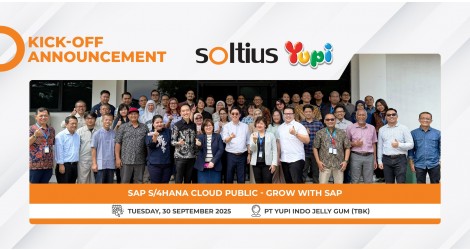Leveraging Cloud-Based ERP To Improve Data Management

Most companies today run on a fractured ERP environment. Over half of respondents to our 2018 “ERP in the Cloud” poll told us that they’re using multiple on-premises ERPs in their organization (see chart, below). That stands in the way of standardizing processes, looking across processes, and collecting cross-enterprise data.
Not coincidently, the survey identified a growing interest in shifting companies’ ERP platforms to the cloud. Over 40% of enterprise respondents said that a cloud ERP strategy is either critical or highly important to their overall transformation effort.
So far with the cloud, companies have adopted point solutions. However, organizations are beginning to realize that they are still missing a core IT architecture that would integrate disparate applications. They need a single and agile technology backbone: One platform that integrates functions and processes, and that is scalable, easily upgraded, inexpensive to own, and comes with built-in best practices.

Getting an enterprise-wide view of data
A major benefit of moving to cloud-based ERP is the ability to create a holistic view of enterprise data. Today, a lot of this data “orchestration” is handled manually; it often requires customized adaptations and consulting intervention. With cloud ERP, the links are easily automated, increasing finance’s field of vision. That’s important in enabling more sophisticated analyses, and thus the insight finance can offer senior management.
More advanced data-management capabilities provide three critical benefits to the finance function:
- Enhanced analytics: Finance can deploy distributed data processing and refine its analysis using a variety of techniques, like predictive modeling. It can also leverage machine learning to identify relationships between different data sets and teach the system how to continuously improve its performance.
- A broader context: Finance gains a line of sight into the full spectrum of internal financial and operational data; it can also pull in Big Data. As a result, finance is better able to connect the dots between business actions and financial results within a broader competitive, business, and economic context.
- Enabling MDM: Improved management of data sources is correlated with the effective implementation of master data management (MDM) tools and discipline. MDM and data governance ensure data integrity. They also help companies avoid data entropy. They regulate any changes in the data or data definitions; they also determine how to add new data and stay compliant with external regulations.
Building the foundation for advanced tools
Building a robust data-management capability is critical to managing performance and identifying and predicting financial results. It’s the foundation for the adoption of other digital tools, like advanced analytics or artificial intelligence. While HR leads the way so far in the adoption of cloud-based ERP solutions, finance’s adoption rate is forecast to double in the next 12-18 months to 44%, according to our 2018 ERP in the cloud poll.
Sure, we’re a long way from a mainstream cloud-based ERP environment. But the need for a cohesive enterprise platform (and the focus of large vendors’ development efforts) indicates that the trend toward greater adoption will only become more pronounced.
Soltius dapat membantu perusahaan Anda mewujudkan ERP in Cloud
hubungi kami untuk solusi tepat perusahaan Anda
021-29345925 / sales@soltius.co.id
Other News


